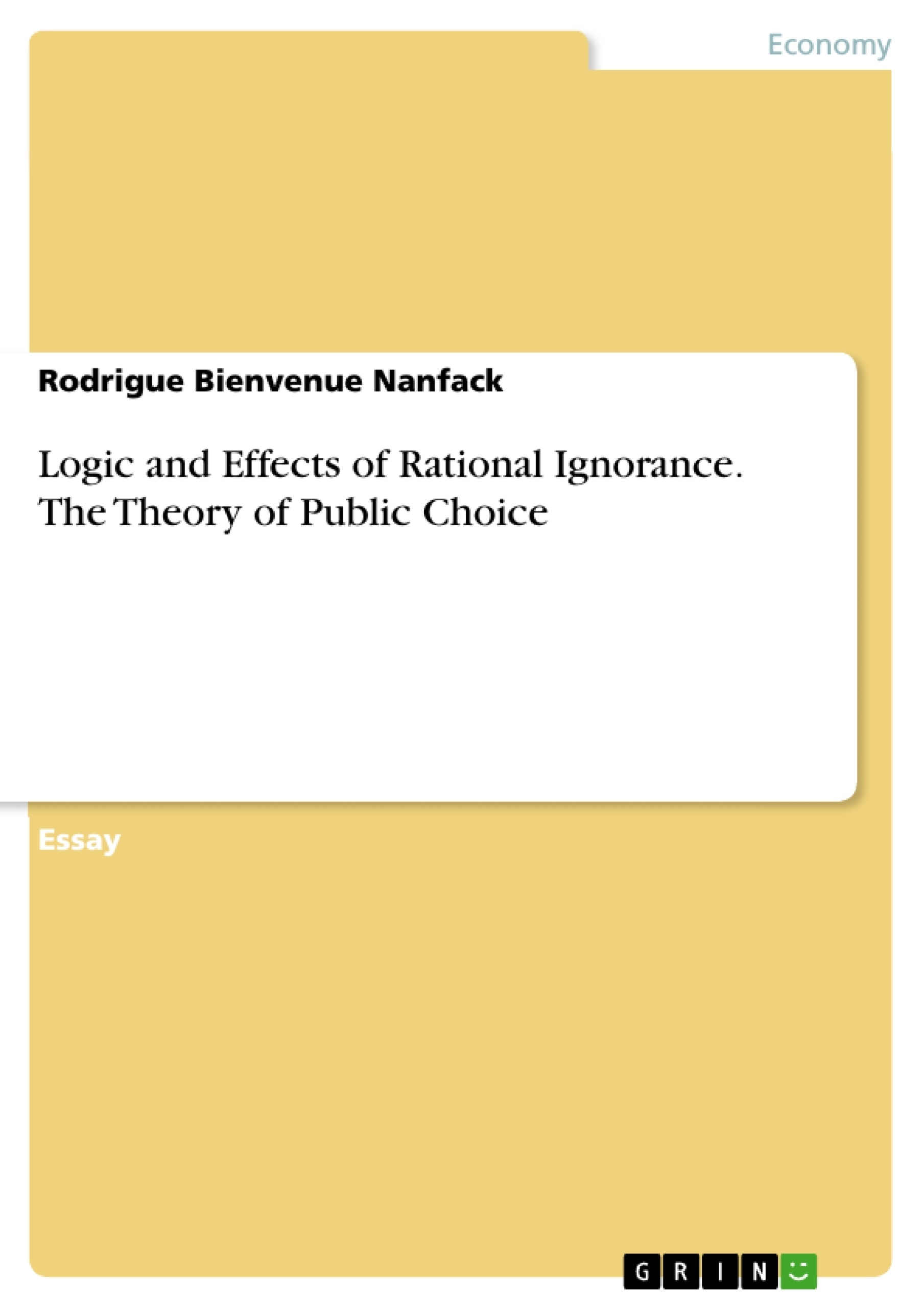Many political failure arguments implicitly assume that voters are irrational. The main part of this paper is going to show that this assumption is plausible. This paper will show why voters prefer to be ignorant, what logic motivates this behavior, what effects this ignorance could or may have in election results.
The focus of this paper is to try to understand what issue those behaviors may bring to electoral systems and to try to demonstrate what irrational ignorance really is. Josh Billings (in Caruth and Ehrlich 1988, P.205) said “The trouble with people is not that they don’t know, but that they know so much that they ain’t so”; arguing with this citation, we could conclude that rational ignorance does not happen because of a lack of information, but because of a voluntary refusal of being informed. The subject won’t be informed because he doesn’t see any use in this information.
Rational ignorance occurs when the cost of educating oneself on an issue exceeds the potential benefit that the knowledge would provide. Rational ignorance can be found most often in the case of general elections, when the voter considers the probability of his vote changing the outcome to be pretty small. Those voters will definitely not cast their vote.
Table of Contents
- Introduction.
- Logic and effects of rational ignorance.
- Logic under rational ignorance model...
- Effects of rational ignorance....
- Rational Ignorance and political Beliefs
- Policies that might reduce fiscal illusion
- Conclusion..
Objectives and Key Themes
This paper explores the concept of rational ignorance in political decision-making. It aims to demonstrate why voters may prefer to remain uninformed about political issues, the logic behind this behavior, and the potential effects on election outcomes. The paper also investigates how politicians might exploit rational ignorance to advance their interests.
- The logic of rational ignorance and its effects on voting behavior.
- The role of self-interest and incentives in shaping voter preferences.
- The potential for politicians to manipulate voter ignorance.
- The concept of fiscal illusion and its impact on public spending.
- Policies that could reduce fiscal illusion and promote greater voter awareness.
Chapter Summaries
The introduction sets the stage by introducing the concept of rational ignorance and its relevance to political decision-making. It discusses the potential for voters to make irrational choices due to a lack of information and the role of self-interest in shaping these choices.
The second chapter delves into the logic and effects of rational ignorance. It examines the incentives that lead voters to remain uninformed and the potential consequences for election outcomes. This chapter also explores the link between rational ignorance and the formation of political beliefs.
The third chapter investigates the relationship between rational ignorance and political beliefs. It discusses how politicians might exploit voter ignorance to promote their interests and the limitations on the extent to which voter ignorance can be exploited. This chapter also explores policies that could reduce fiscal illusion and promote greater voter awareness.
Keywords
Rational ignorance, voter behavior, political decision-making, fiscal illusion, self-interest, political beliefs, election outcomes, policy manipulation.
- Quote paper
- Rodrigue Bienvenue Nanfack (Author), 2010, Logic and Effects of Rational Ignorance. The Theory of Public Choice, Munich, GRIN Verlag, https://www.grin.com/document/318987




